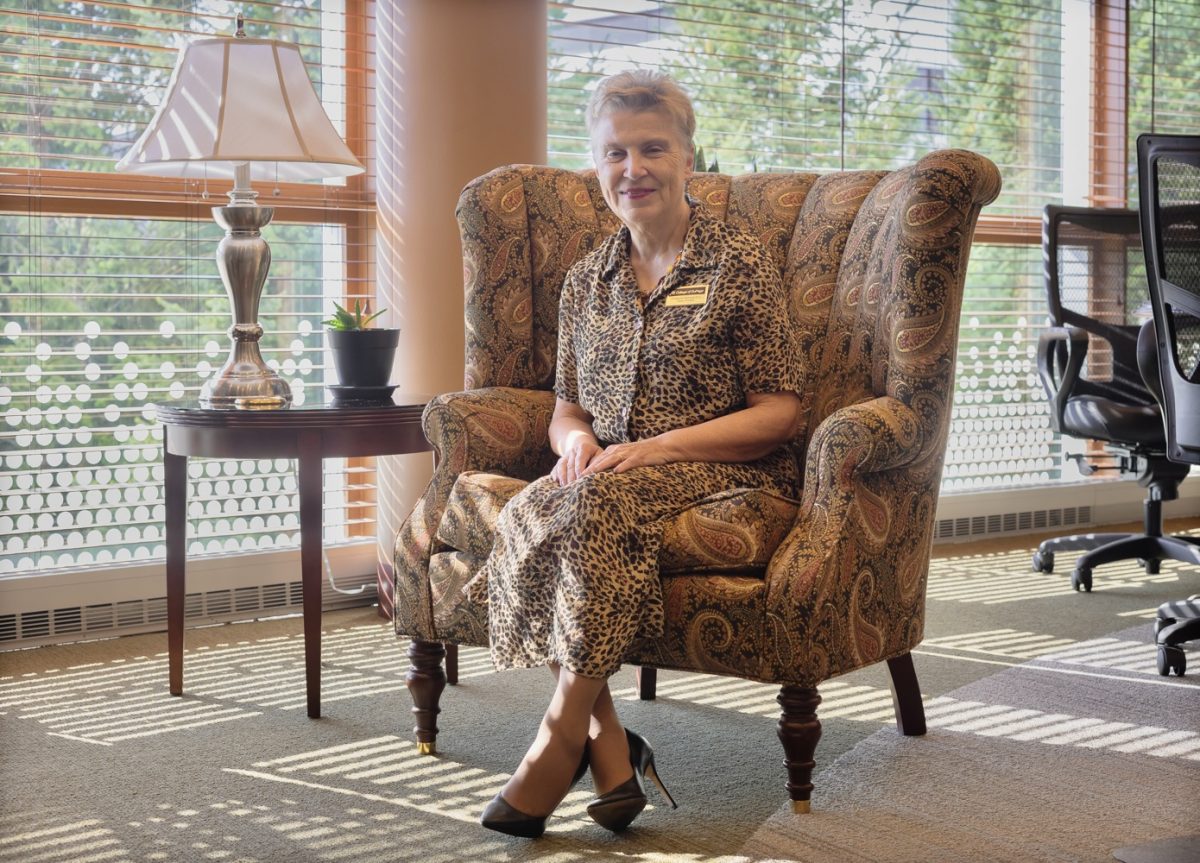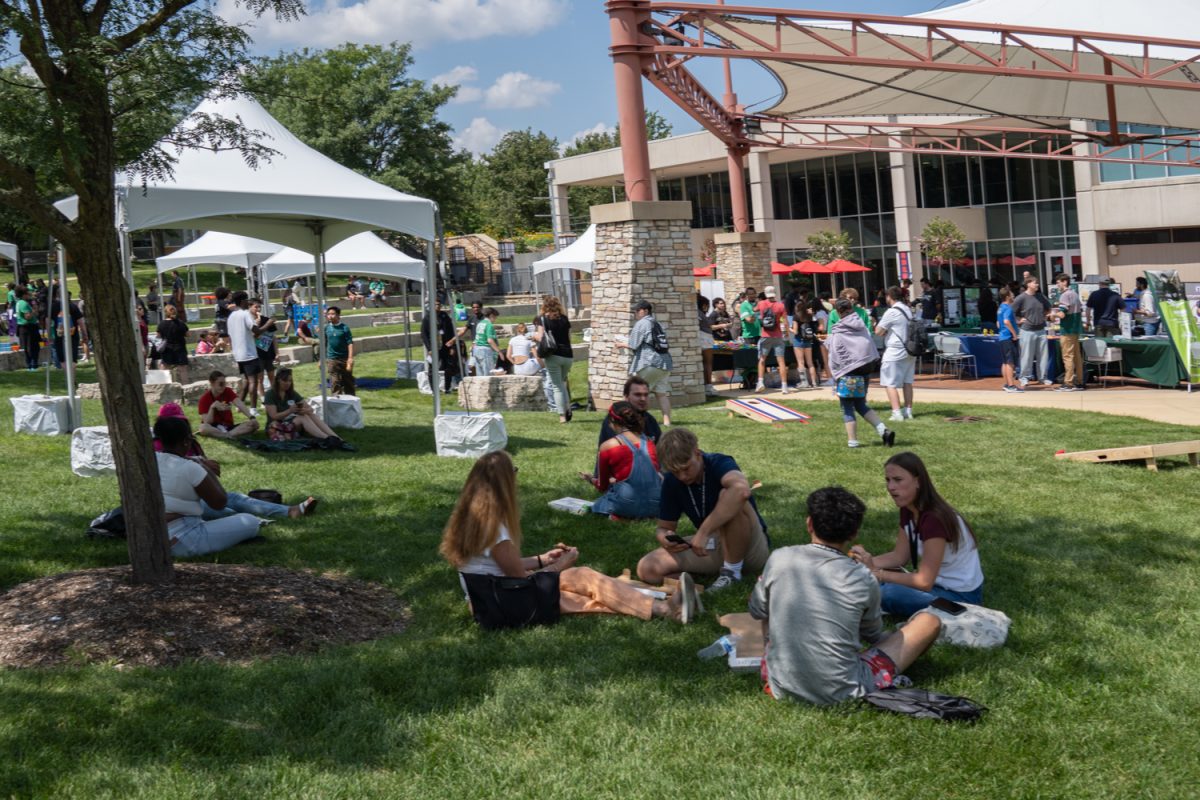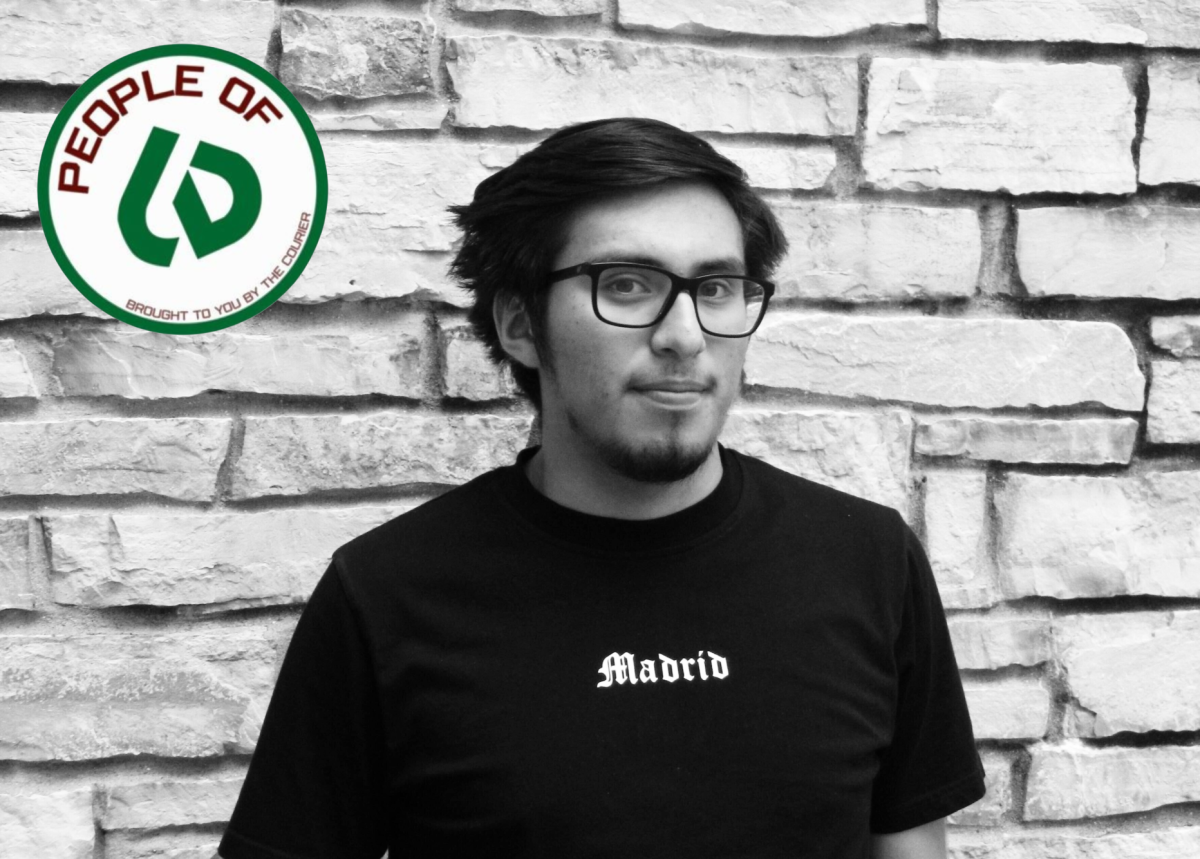Standing just around 5’1” and clad head to toe in leopard print with pink-purple lipstick, it was immediately clear to me that Interim College of DuPage President Christine Hammond stands firm in herself and her convictions. Hammond steadfastly navigated through the interview with ease, drawing upon her oratorical skills and Midwestern charm.
Her experience in higher education leadership was palpable. Her position as interim president at COD will be her third interim position since her retirement in 2020. Previously, she led a 40-year-long career as the executive director of administration for the College of Law at Michigan State, chief academic officer at North Central Michigan College, and most recently, president of Mid Michigan College.
KS: When you came to COD, what were your first thoughts about the community and campus?
CH: It’s an amazing place, isn’t it? I think everybody who comes here probably marvels at the resources, the beauty of the campus. For my husband and I, we were sort of surprised at how close it was to the prairie. The other thing that both surprised and delighted me was when I walked around campus, sometimes on tours but also sometimes just walking around, even in the summer, there were still a number of people on campus, and they were so proud and anxious to show me all the good work they were doing. “This is my lab, this is what we do,” “This is the Olmec Festival,” just one thing after another where you could see that COD is playing such an important role in the community across people of all ages.
KS: You’ve certainly had an extensive career in community college leadership. What does community college mean to you and what does a community college need in order to succeed?
CH: This is my second [community college] presidency, and I have been the chief academic officer for three different community colleges. I have had the good fortune of having a really interesting career. In community college, we are about three things. We are about access; everybody can come and everybody is welcome. This afternoon, I met with the folks from Continuing Education downstairs. 30,000 enrollments last year, ranging in age from 5 to 102. How amazing is that, the educational access that we are providing throughout District 502 and sometimes from beyond? Second thing that we’re about is affordability. Usually, you can finish your degree at community college for a third to half the cost of what you would spend if you went directly. There are ways that affordability enables people to get started and then to invest the remaining funds in other things, like taking a study abroad or supporting their families and their children. The third thing is accountability. We are accountable to the people we serve because it’s their tax dollars, both at the state and local level, that are making it possible for us to function. They have a role to play in all of that, and it can’t be discounted.
KS: COD is the second largest college system within the state of Illinois. What challenges accompany managing a school of this size?
CH: One of my tasks for the coming year is to try to lay the groundwork and have a good foundation for your permanent president. I can only do that by listening to the people who are already here and understanding what their concerns might be, including student concerns, and trying to find ways to bring people together. I think that is a challenge at large institutions. I’ve heard about silos here at COD, and we’re going to try to work on that in the coming year. There are ways we should be fostering connections with each other that maybe haven’t happened yet. That’s not anybody’s fault, probably relates to coming back from COVID and learning how to dance with each other again.
KS: What do you think is the biggest challenge for students in higher education today, especially community college students?
CH: If you ask them, and there have been many studies on this, money and affordability is the biggest barrier. And that has to do, in a lot of ways, with how many hours do students feel they have to work in addition to their coursework. How are they making ends meet? And then that translates into all the other issues: mental health issues and the stress and strain of anxiety that some students face, the food insecurity and housing insecurity, and childcare issues. All of those things combine, but a lot of studies say that affordability is at the root of a lot of those things.
I am very concerned in our country about the “some college, no degree.” My older brother and sister went to college, neither of them finished. There are a lot of people who don’t finish, and I saw the impact of that particularly on my brother’s career. Smart, hard-working, diligent, but the lack of the degree held him back when he hit middle age and wanted to advance. So, I am very concerned about that, and sometimes we read in the media about “student loan debt is too high, these people who default on their loans.” Do you know who defaults on their loans? The people who don’t finish their degrees. It’s the people who stop their education and go back to work at the 7/11 who are burdened by that debt. It affects their credit rating long term, and they can’t advance to promotion opportunities as they can’t hold the competition with those who have a degree.
KS: The last decade has seen an increase in the prevalence of mental health conversations and initiatives, especially as students are entering adulthood during a cost-of-living crisis. Yet, in 2023, COD cut 18 part-time counselors. What is the administration doing to support students and faculty with their mental well-being?
CH: We are doing some things to reorganize and support the counseling department. They are launching the “Unbox” initiative that really focuses on mental health. I am going to jump back to integrative planning. One of the things that we do need to look at is our staffing pattern at the college and what’s our hiring plan. Given our current enrollment and population, what is the appropriate staffing? Not just in Counseling and Advising, but in any number of areas.
KS: Anything I didn’t ask or mention that you think is important to talk about?
CH: I would like to mention that I love meeting students. I am a big supporter of PTK and the PTK Foundation. I would gladly join students for conversation if asked and would welcome those opportunities.









